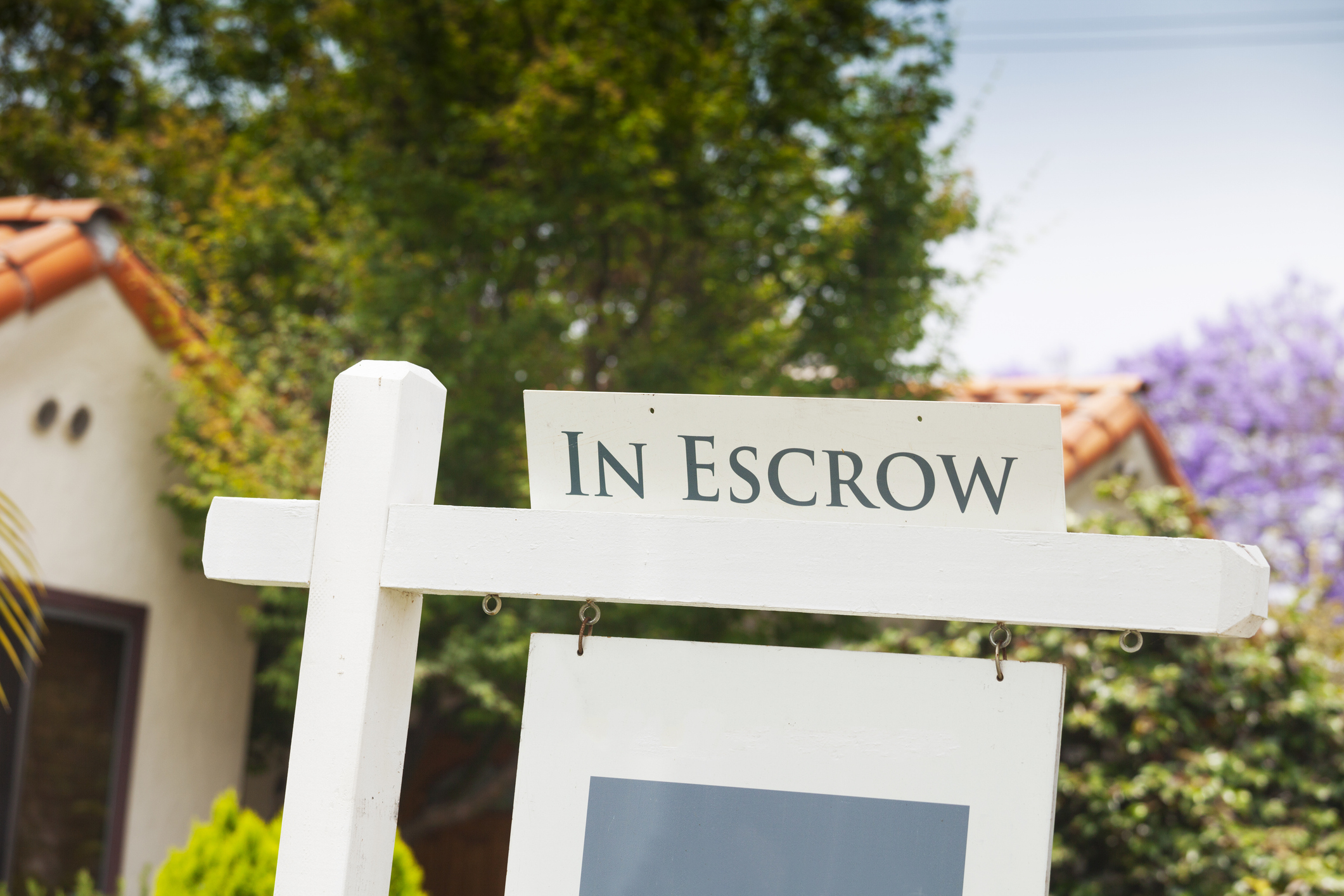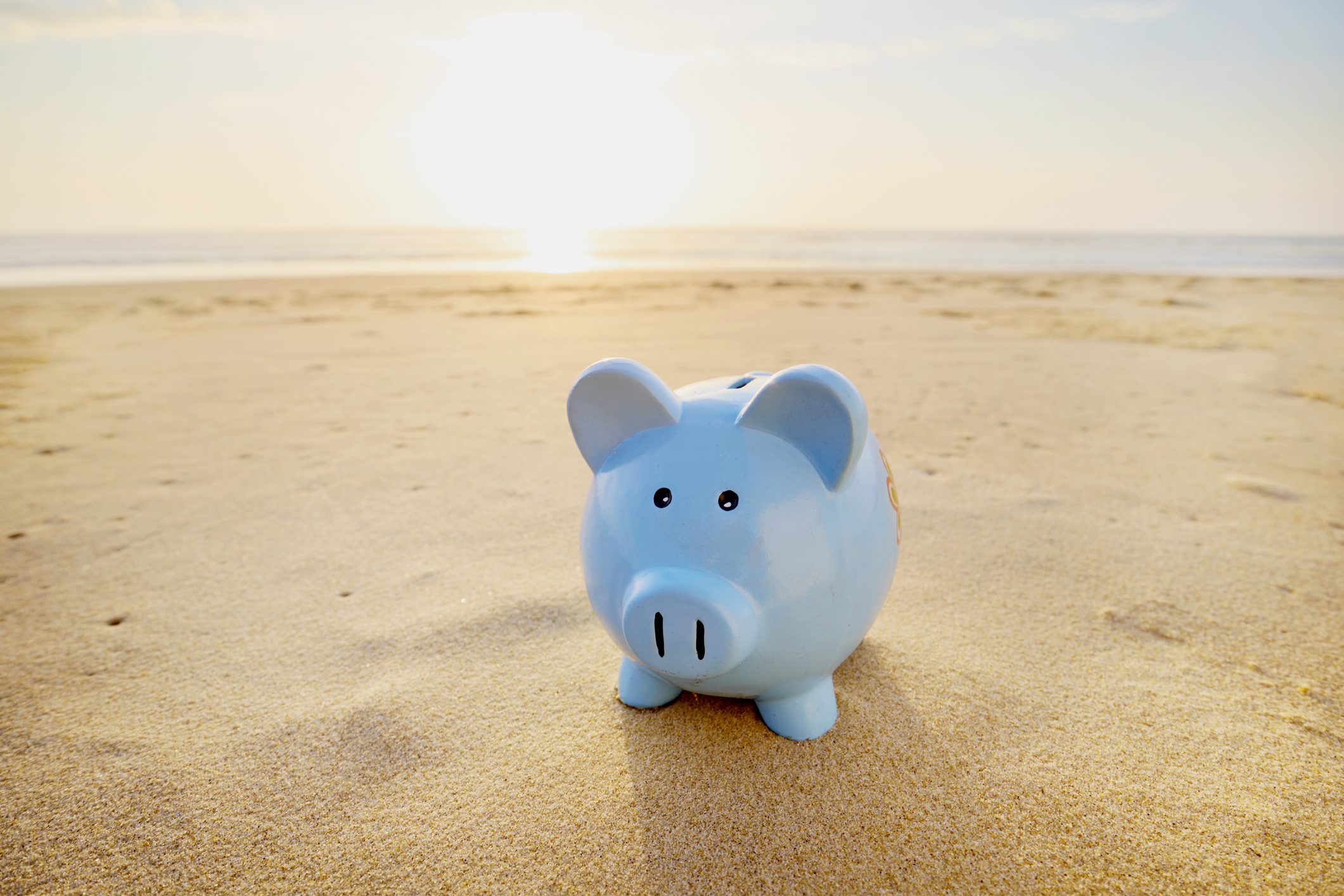What to Know About Mortgage Escrow Accounts
Escrow accounts ensure that you pay your bills for home insurance and property taxes.

Profit and prosper with the best of Kiplinger's advice on investing, taxes, retirement, personal finance and much more. Delivered daily. Enter your email in the box and click Sign Me Up.
You are now subscribed
Your newsletter sign-up was successful
Want to add more newsletters?

Delivered daily
Kiplinger Today
Profit and prosper with the best of Kiplinger's advice on investing, taxes, retirement, personal finance and much more delivered daily. Smart money moves start here.

Sent five days a week
Kiplinger A Step Ahead
Get practical help to make better financial decisions in your everyday life, from spending to savings on top deals.

Delivered daily
Kiplinger Closing Bell
Get today's biggest financial and investing headlines delivered to your inbox every day the U.S. stock market is open.

Sent twice a week
Kiplinger Adviser Intel
Financial pros across the country share best practices and fresh tactics to preserve and grow your wealth.

Delivered weekly
Kiplinger Tax Tips
Trim your federal and state tax bills with practical tax-planning and tax-cutting strategies.

Sent twice a week
Kiplinger Retirement Tips
Your twice-a-week guide to planning and enjoying a financially secure and richly rewarding retirement

Sent bimonthly.
Kiplinger Adviser Angle
Insights for advisers, wealth managers and other financial professionals.

Sent twice a week
Kiplinger Investing Weekly
Your twice-a-week roundup of promising stocks, funds, companies and industries you should consider, ones you should avoid, and why.

Sent weekly for six weeks
Kiplinger Invest for Retirement
Your step-by-step six-part series on how to invest for retirement, from devising a successful strategy to exactly which investments to choose.
When you finance your home with a mortgage, your lender will likely require you to maintain an escrow account. With this setup, a portion of your monthly mortgage payment is set aside to cover your annual property taxes and home insurance premiums.
Lenders want to protect their financial investment when they loan you money; an escrow account acts as a forced savings account to ensure those property expenses are paid on time and in full, says Ed Santiago, a branch manager with Fairway Independent Mortgage in Wayne, Pa.
Lenders hold back one-twelfth of the estimated annual expenses each month to pay your taxes and insurance. Some lenders require an additional cushion of up to two months' worth of expenses to avoid potential escrow shortages. If you end up with an overage because you get a cheaper insurance policy or your property taxes decrease, your lender will send you a refund check.
From just $107.88 $24.99 for Kiplinger Personal Finance
Become a smarter, better informed investor. Subscribe from just $107.88 $24.99, plus get up to 4 Special Issues

Sign up for Kiplinger’s Free Newsletters
Profit and prosper with the best of expert advice on investing, taxes, retirement, personal finance and more - straight to your e-mail.
Profit and prosper with the best of expert advice - straight to your e-mail.
Because property-tax assessments and insurance rates tend to rise over time, the amount collected for escrow can fluctuate. So while your principal and interest payments remain the same for the life of a fixed-rate mortgage, your total monthly payment may change from year to year.
Homeowners felt the sting of both higher property-tax bills and soaring home insurance premiums in 2024. According to data from Intercontinental Exchange, home insurance premiums rose by an average 14% from the previous year, and 2024 property-tax bills jumped 2.7%.
Escrow rules
Government-backed mortgages — Federal Housing Administration (FHA), Department of Veterans Affairs (VA) and U.S. Department of Agriculture (USDA) loans — require escrow accounts regardless of the down payment amount.
For conventional loans, most lenders require an escrow account if you put down less than 20% on the home purchase. In some cases, though, you can get an escrow waiver with a loan-to-value ratio of 95% or less, a good credit score, and no recent mortgage payment delinquencies or defaults on past escrow waivers. However, you’ll pay 0.25% of the loan amount for an escrow waiver.
A waiver makes sense only if you have sufficient disposable income to cover larger (but less frequent) tax and insurance payments and the financial discipline to keep up with them independently, Santiago says. Check how often your locality collects property taxes — some collect only once or twice a year, leading to bigger bills, while others collect quarterly.
If you get an escrow waiver, you could put money to pay your insurance and tax bills in a high-yield savings account, earning interest on the funds. (But for this to be worthwhile, your interest earnings would need to be greater than the fee to waive escrow.)
Additionally, if you switch home insurance providers or successfully appeal your home's assessed value for property taxes, you may not face as much hassle and paperwork. But most loan servicers offer online account management, so updating your account isn't as cumbersome as it used to be, Santiago says.
And the flexibility of managing escrow expenses on your own isn't without some risk. Failing to pay your property taxes could result in your county filing a tax lien against your home, potentially leading to foreclosure.
Likewise, if you don't pay your homeowners insurance premiums and let the coverage lapse, you're breaching your agreement to maintain home insurance as a condition of taking out a mortgage. In that event, your loan servicer can require force-placed homeowners insurance, which is usually costlier and less comprehensive, Santiago says.
Note: This item first appeared in Kiplinger Personal Finance Magazine, a monthly, trustworthy source of advice and guidance. Subscribe to help you make more money and keep more of the money you make here.
Related Content
Profit and prosper with the best of Kiplinger's advice on investing, taxes, retirement, personal finance and much more. Delivered daily. Enter your email in the box and click Sign Me Up.
Personal finance journalist, communicator and content strategist who writes and edits for impact.
-
 Quiz: Do You Know How to Avoid the "Medigap Trap?"
Quiz: Do You Know How to Avoid the "Medigap Trap?"Quiz Test your basic knowledge of the "Medigap Trap" in our quick quiz.
-
 5 Top Tax-Efficient Mutual Funds for Smarter Investing
5 Top Tax-Efficient Mutual Funds for Smarter InvestingMutual funds are many things, but "tax-friendly" usually isn't one of them. These are the exceptions.
-
 AI Sparks Existential Crisis for Software Stocks
AI Sparks Existential Crisis for Software StocksThe Kiplinger Letter Fears that SaaS subscription software could be rendered obsolete by artificial intelligence make investors jittery.
-
 We Retired at 62 With $6.1 Million. My Wife Wants to Make Large Donations, but I Want to Travel and Buy a Lake House.
We Retired at 62 With $6.1 Million. My Wife Wants to Make Large Donations, but I Want to Travel and Buy a Lake House.We are 62 and finally retired after decades of hard work. I see the lakehouse as an investment in our happiness.
-
 I'm an Opportunity Zone Pro: This Is How to Deliver Roth-Like Tax-Free Growth (Without Contribution Limits)
I'm an Opportunity Zone Pro: This Is How to Deliver Roth-Like Tax-Free Growth (Without Contribution Limits)Investors who combine Roth IRAs, the gold standard of tax-free savings, with qualified opportunity funds could enjoy decades of tax-free growth.
-
 I'm a Real Estate Investing Pro: This Is How to Use 1031 Exchanges to Scale Up Your Real Estate Empire
I'm a Real Estate Investing Pro: This Is How to Use 1031 Exchanges to Scale Up Your Real Estate EmpireSmall rental properties can be excellent investments, but you can use 1031 exchanges to transition to commercial real estate for bigger wealth-building.
-
 My Spouse and I Are Saving Money for a Down Payment on a House. Which Savings Account is the Best Way to Reach Our Goal?
My Spouse and I Are Saving Money for a Down Payment on a House. Which Savings Account is the Best Way to Reach Our Goal?Learn how timing matters when it comes to choosing the right account.
-
 The High Cost of Sunshine: How Insurance and Housing Are Reshaping Snowbird Living
The High Cost of Sunshine: How Insurance and Housing Are Reshaping Snowbird LivingThe snowbird lifestyle is changing as insurance and housing costs climb. Here’s how retirees are adapting and where they’re choosing to go.
-
 How to Turn Your 401(k) Into A Real Estate Empire — Without Killing Your Retirement
How to Turn Your 401(k) Into A Real Estate Empire — Without Killing Your RetirementTapping your 401(k) to purchase investment properties is risky, but it could deliver valuable rental income in your golden years.
-
 We're 62 With $1.4 Million. I Want to Sell Our Beach House to Retire Now, But My Wife Wants to Keep It and Work Until 70.
We're 62 With $1.4 Million. I Want to Sell Our Beach House to Retire Now, But My Wife Wants to Keep It and Work Until 70.I want to sell the $610K vacation home and retire now, but my wife envisions a beach retirement in 8 years. We asked financial advisers to weigh in.
-
 We Inherited $250K: I Want a Second Home, but My Wife Wants to Save for Our Kids' College.
We Inherited $250K: I Want a Second Home, but My Wife Wants to Save for Our Kids' College.He wants a vacation home, but she wants a 529 plan for the kids. Who's right? The experts weigh in.